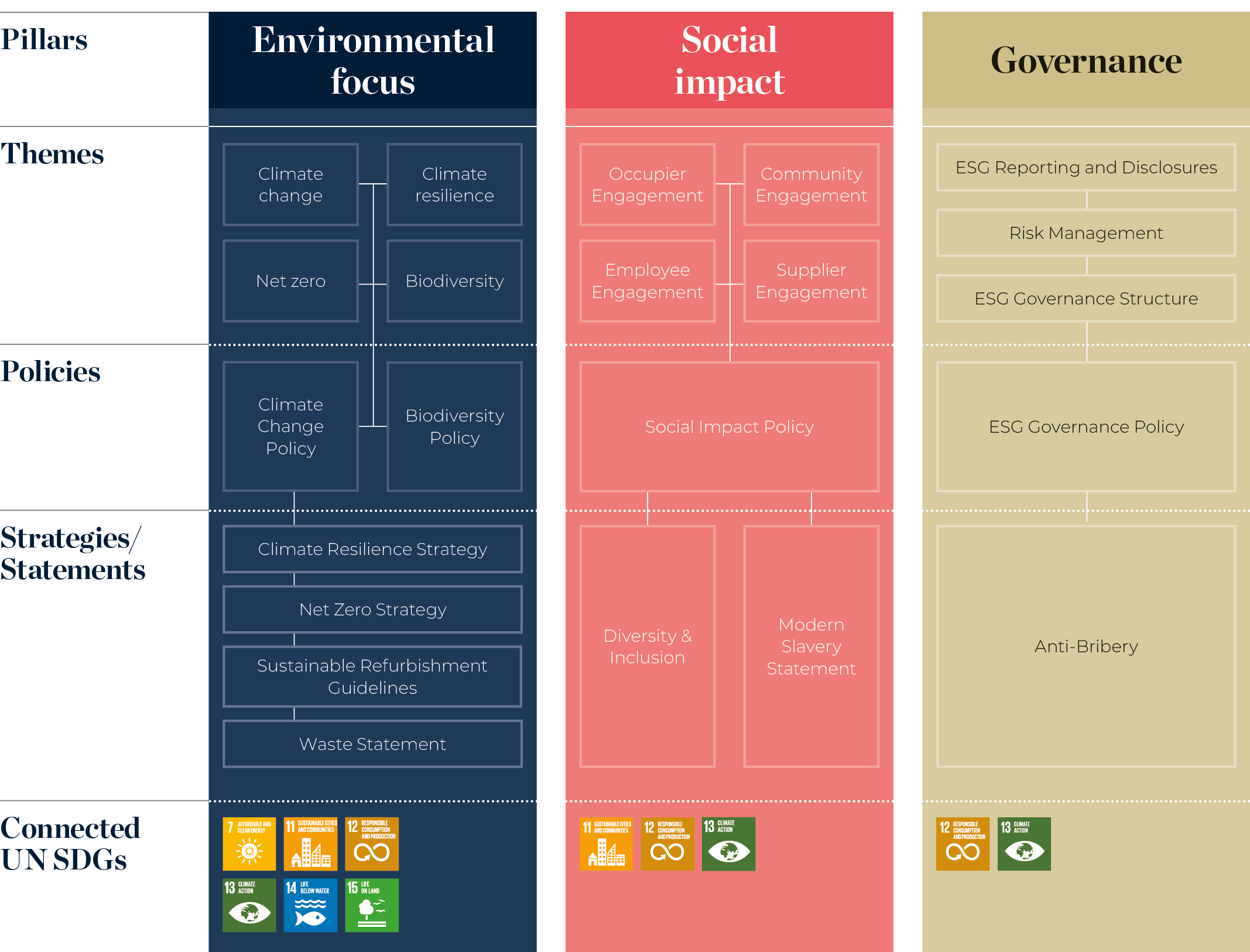Sustainable thinking, a responsible approach to business
We are committed to integrating environmental, social and governance best practice within our core business activities and continue to evolve our approach, developing our policies and strategies to support our key priorities.
Our ESG priorities focus on creating long-term value through sustainable practices. These priorities address environmental impacts, social value creation and strong governance frameworks.
Strategy and policy framework





